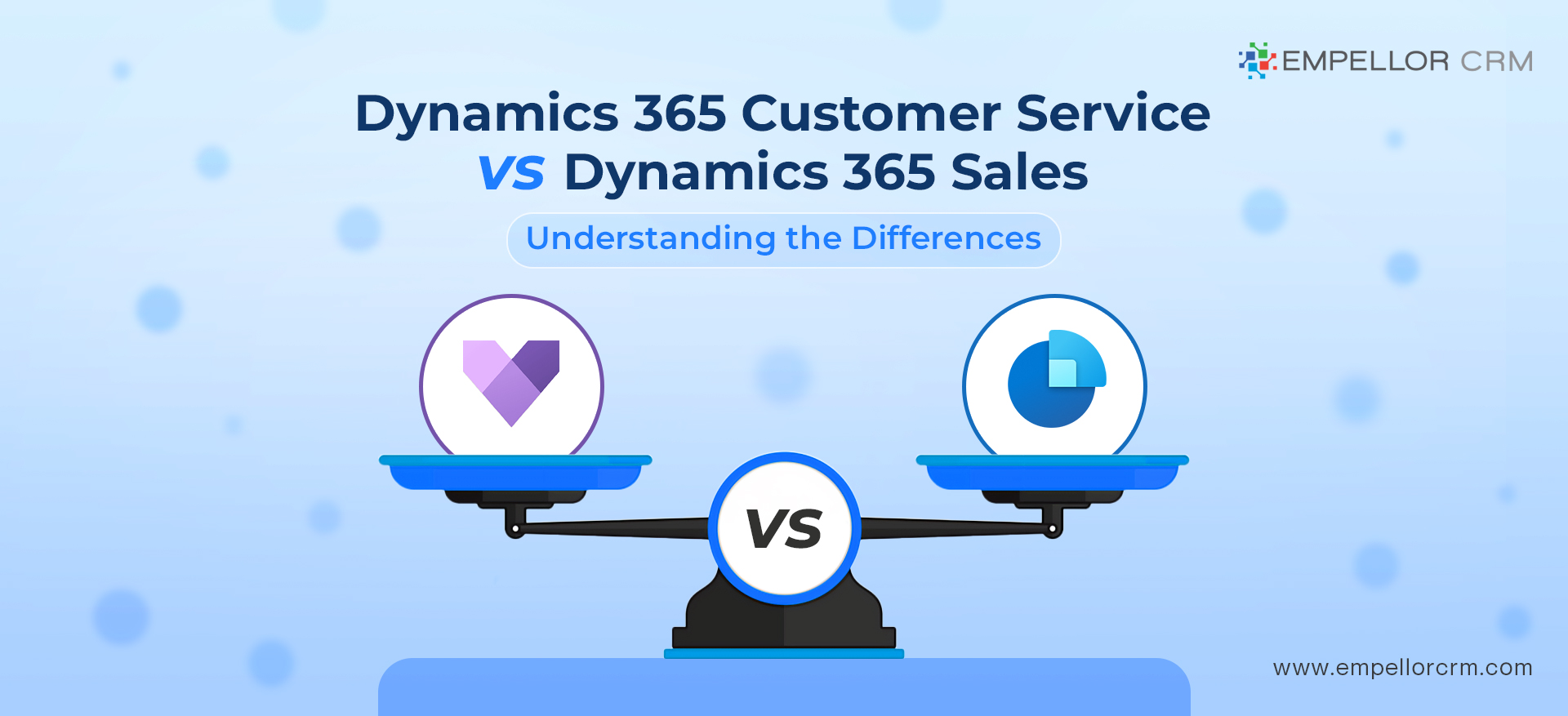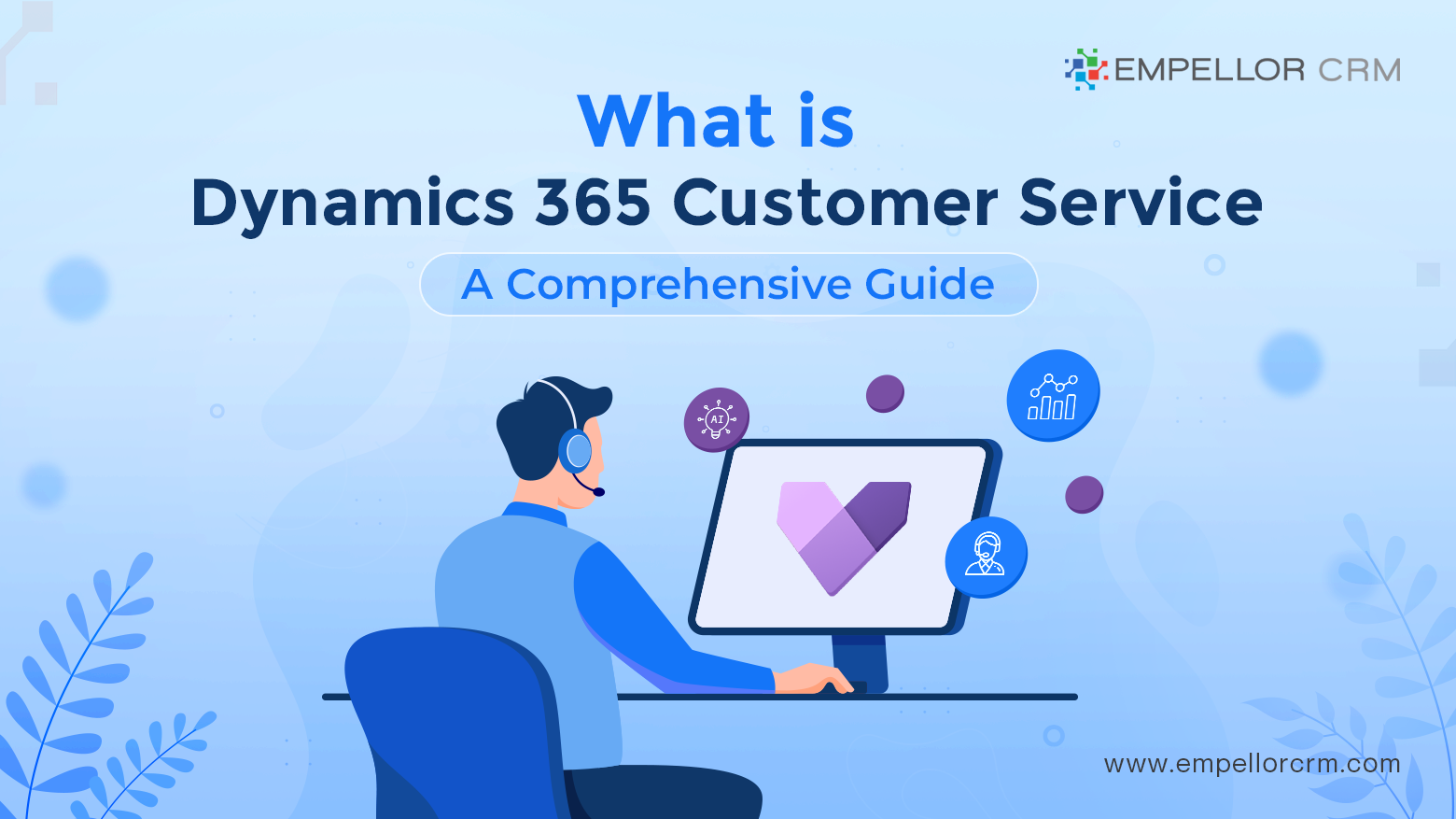Claim your free copy of the book CRM Shouldn’t Suck
Claim your free copy of the book CRM Shouldn’t Suck
Dynamics 365 Customer Service vs Sales: Understanding the Differences

When navigating the world of business software, understanding the distinctions between various tools is essential. Two key components of Microsoft’s Dynamics 365 suite are Customer Service and Sales. Both are powerful in their own right, but they serve distinct purposes. In this post, we’ll delve into the differences between Dynamics 365 Customer Service and Sales. Our goal is to help you make informed decisions for your business.
Introduction to Dynamics 365 Customer Service
Firstly, Dynamics 365 Customer Service is designed to enhance customer satisfaction. It’s a comprehensive tool that focuses on delivering exceptional service. With this application, businesses can efficiently manage customer queries, resolve issues quickly, and ensure that every interaction adds value to the customer relationship. It’s all about fostering loyalty and improving customer retention.
Key Features of Dynamics 365 Customer Service
One of the standout features of Dynamics 365 Customer Service is its omnichannel capabilities. This means you can engage with customers through various channels such as email, chat, social media, and phone calls, all from a single interface. This unified approach ensures that no customer query goes unanswered.
Moreover, Dynamics 365 Customer Service offers robust case management features. This allows your team to track, manage, and resolve customer issues with ease. The system prioritizes cases, assigns them to the right agents, and monitors progress until resolution. Additionally, it provides a knowledge base, enabling agents to find solutions quickly.
Introduction to Dynamics 365 Sales
On the other hand, Dynamics 365 Sales focuses on boosting sales productivity and effectiveness. This tool helps sales teams build strong relationships with potential customers, streamline sales processes, and close deals faster. It’s tailored to manage the entire sales lifecycle, from lead generation to deal closure.
Key Features of Dynamics 365 Sales
Dynamics 365 Sales offers powerful lead and opportunity management. Sales representatives can track prospects, engage with them effectively, and convert leads into customers. The system provides insights into customer needs and preferences, which helps in personalizing sales pitches.
Additionally, Dynamics 365 Sales integrates seamlessly with LinkedIn Sales Navigator. This integration gives sales teams access to a wealth of information about prospects, enabling more informed and strategic outreach. Furthermore, the tool provides sales forecasting and pipeline management, ensuring that sales managers have a clear view of performance and can make data-driven decisions.
Dynamics 365 Customer Service vs Sales: A Comparison
Now, let’s compare Dynamics 365 Customer Service vs Sales directly. The core difference lies in their primary focus. Customer Service is all about maintaining and improving existing customer relationships. It’s designed to handle post-sale interactions, ensuring customers remain satisfied and loyal.
In contrast, Dynamics 365 Sales is focused on acquiring new customers and closing sales. It manages pre-sale activities, from lead generation to finalizing deals. While both tools aim to improve customer relationships, they do so at different stages of the customer journey.
Another key difference is in their feature sets. Dynamics 365 Customer Service offers features like case management, a knowledge base, and omnichannel support. These features are geared towards resolving customer issues and improving service efficiency. Meanwhile, Dynamics 365 Sales includes lead management, sales forecasting, and LinkedIn integration, all aimed at enhancing sales performance and effectiveness.
How Dynamics 365 Customer Service and Sales Work Together
Despite their differences, Dynamics 365 Customer Service and Sales are designed to work seamlessly together. When integrated, they provide a holistic view of the customer journey. Sales teams can hand over detailed customer information to the service team once a deal is closed. This ensures a smooth transition and consistent customer experience.
Moreover, insights gained from customer service interactions can feed back into the sales process. For instance, understanding common customer issues can help sales teams address potential objections more effectively. This synergy enhances overall business performance and customer satisfaction.
Benefits of Using Dynamics 365 Customer Service
Let’s explore some of the specific benefits of using Dynamics 365 Customer Service. Firstly, it enhances customer satisfaction by providing quick and effective issue resolution. The omnichannel support ensures that customers can reach out through their preferred channels, improving accessibility.
Secondly, the case management system streamlines the process of handling customer queries. It ensures that issues are assigned to the right agents and tracked until resolved. This not only improves efficiency but also ensures accountability.
Lastly, the knowledge base is a valuable resource for both customers and agents. It provides quick access to solutions for common issues, reducing resolution times and improving service quality.
Benefits of Using Dynamics 365 Sales
Dynamics 365 Sales also offers significant benefits. Firstly, it boosts sales productivity by automating routine tasks and providing valuable insights. Sales representatives can focus more on engaging with prospects and closing deals rather than administrative tasks.
Secondly, the integration with LinkedIn Sales Navigator provides a competitive edge. Sales teams can access detailed information about prospects, enabling more personalized and effective outreach. This increases the chances of converting leads into customers.
Lastly, the sales forecasting and pipeline management features provide clarity and direction. Sales managers can track performance, identify trends, and make informed decisions. This helps in achieving sales targets and driving business growth.
Choosing Between Dynamics 365 Customer Service and Sales
When deciding between Dynamics 365 Customer Service vs Sales, consider your business needs. If your primary focus is on maintaining and enhancing customer relationships, then Dynamics 365 Customer Service is the right choice. It will help you provide exceptional service and foster loyalty.
However, if your goal is to boost sales and acquire new customers, Dynamics 365 Sales is more suitable. It will streamline your sales processes, provide valuable insights, and help you close deals faster.
Conclusion
In conclusion, both Dynamics 365 Customer Service and Sales are essential tools for businesses, but they serve different purposes. Understanding the differences between Dynamics 365 Customer Service vs Sales will help you choose the right tool for your needs. By leveraging these tools effectively, you can enhance customer satisfaction, boost sales productivity, and drive overall business success.
By integrating both tools, you can achieve a seamless and comprehensive approach to customer relationship management. This synergy will ensure that your business remains competitive and successful in today’s dynamic market.


